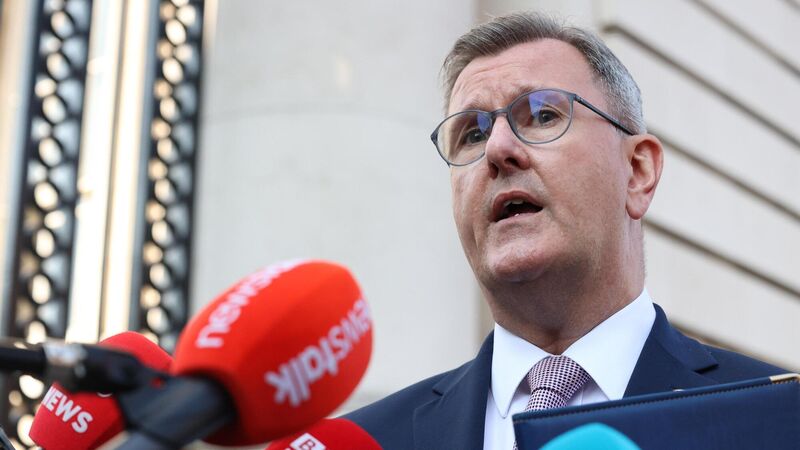Q&A: The implications if the DUP pulls down powersharing in Northern Ireland

DUP leader Jeffrey Donaldson has said the Stormont Assembly "will not survive" if problems created by the Northern Ireland Protocol are not resolved. Picture: Sam Boal / RollingNews.ie
The DUP has threatened to pull down powersharing at Stormont if major changes to Brexit's Northern Ireland Protocol are not secured.
Here are the answers to some of the questions raised by the party's dramatic move.













